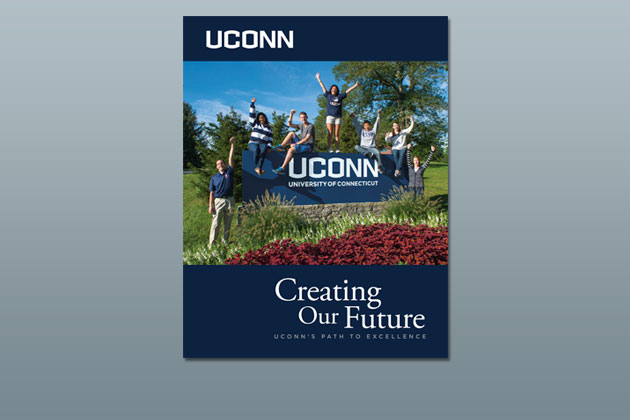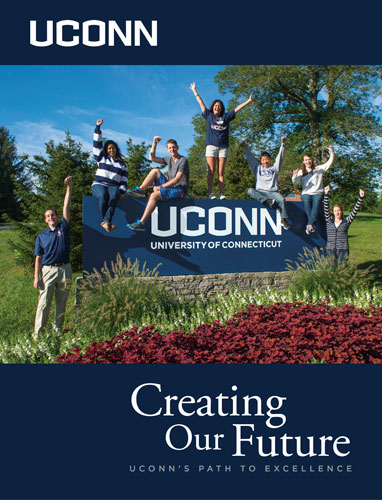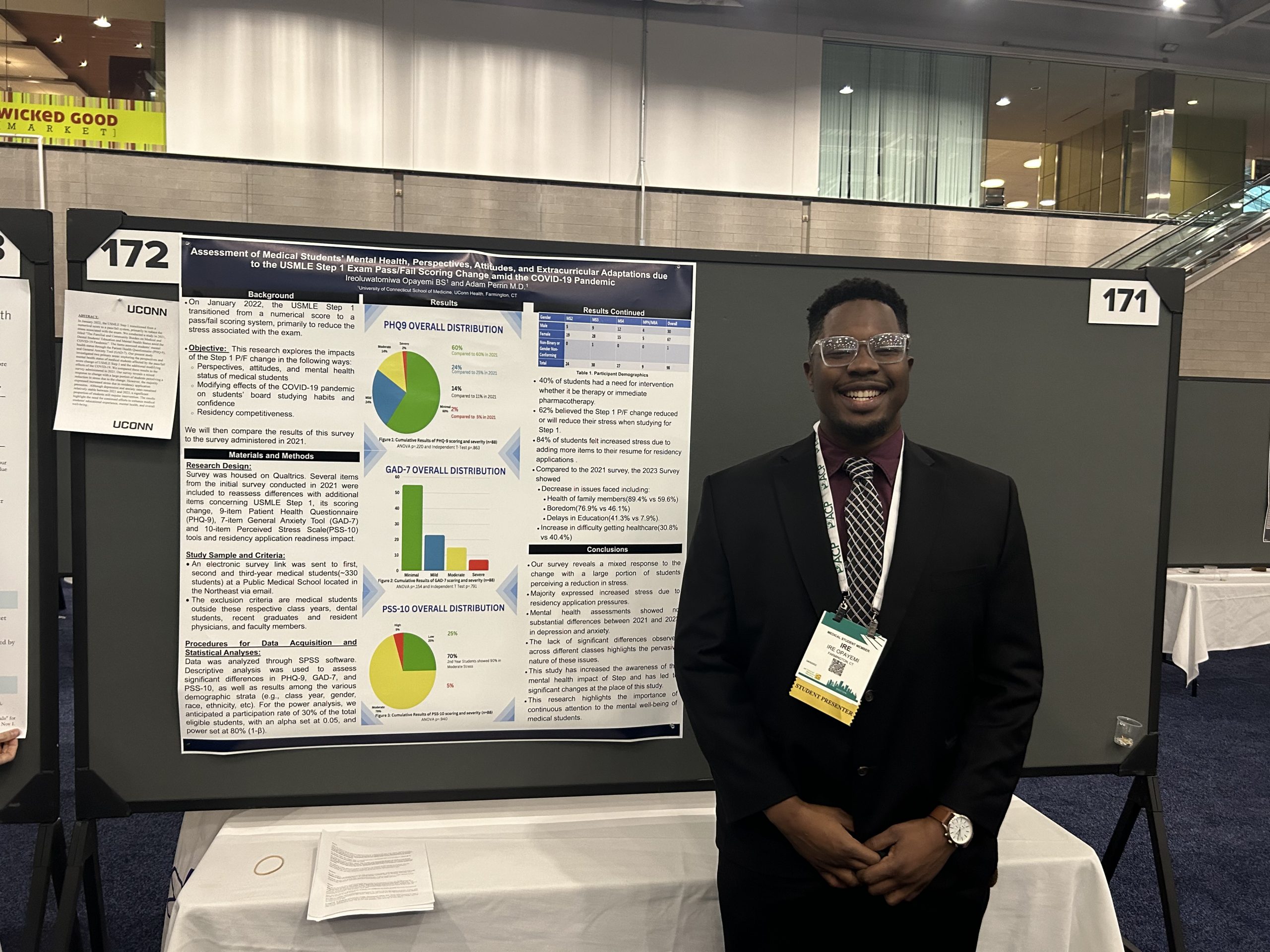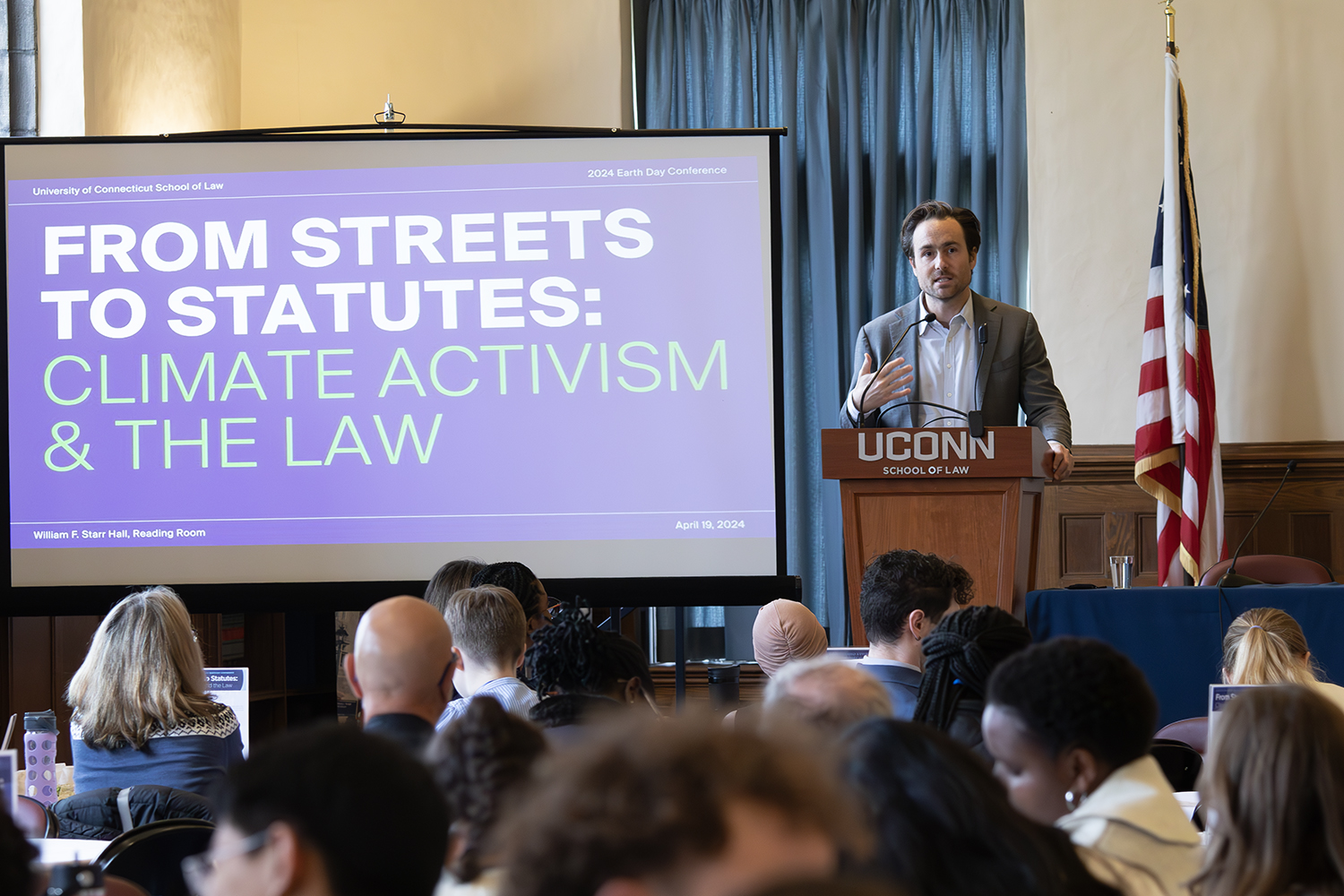The University has adopted a wide-ranging new academic vision to shape its efforts in the coming decade to become a national leader in breakthrough research, innovative undergraduate and graduate education, service, and public engagement.
UConn’s Board of Trustees voted unanimously on Wednesday to adopt the new academic vision, “Creating Our Future: UConn’s Path to Excellence,” which reflects specific and broad-ranging goals in each area to achieve excellence in all aspects of its mission.
“The University of Connecticut, at this transformational time in its history, aspires to join the ranks of the greatest universities in the world while simultaneously serving our region and our nation,” the vision’s introduction reads. “We have the talent, perspective, and confidence to create a better future by becoming a more powerful research university that produces a rich flow of ideas, sparks invention and innovation, and improves the quality of life for all people.”
The vision, which has been in development by a group of faculty from across the University for more than a year, identifies specific strategic initiatives as a basis for making informed decisions on recruiting talented faculty and students, organizing academics, investing in facilities, collaborating with external partners, and other actions.
The academic vision includes expanding educational opportunities, research, and innovation in diverse fields of study with an emphasis on STEM (science, technology, engineering, and math) disciplines over the next decade, while also highlighting the importance of the arts and humanities. It also continues and increases UConn’s commitment to using its resources for statewide and national economic development by helping build a skilled workforce, create jobs, and start and attract companies.
“This is more than a to-do list or a series of statistical benchmarks we want to meet. It is a bold new effort that is guided by a singular vision to achieve excellence in all aspects of our mission as a university: research, education, service, and engagement,” President Susan Herbst told trustees this spring. “This plan, for the first time, focuses on excellence in graduate education and research, as well as maintaining excellence in undergraduate education, pursuing even higher levels of public engagement, and increasing teaching effectiveness – all in all, a comprehensive blueprint for excellence over the next decade.”
The full document, available online, comes after extensive work over the past year by the University Academic Vision Committee. That group researched plans at other flagship institutions, worked with UConn experts to highlight areas of strength and promise, and led public forums and other opportunities for input.
The document opens with an introduction that outlines UConn’s goals, describes its momentum toward those milestones, and identifies core values of innovation, leadership, global engagement and diversity. It also is illustrated throughout with photos and stories demonstrating the success of UConn’s research initiatives, scholars, faculty, academic and service initiatives, and community involvement.
While it builds on current disciplinary strengths and faculty excellence, the vision also guides the University in its focus on seven selected cross-disciplinary areas: advanced materials and manufacturing; artists, scholars, and public discourse; brain, mind, and cognition; genetics, genomics, and personalized medicine; health and wellness; human diversity, disparities, and rights; and environmental and energy sustainability and resilience.
The vision takes the readers step-by-step through specifics that UConn will pursue to achieve excellence in five overarching fundamental goals:
- Research and Scholarship: Recruiting the most talented faculty across the globe; establishing partnerships with other renowned universities; pursuing the highest standards to evaluate research and scholarship; and using a variety of methods to receive more external funding for research through grants, commercialization of technology, industry partnerships, and other means.
- Undergraduate Education: Recruiting highly talented undergraduates and, once they are at UConn, ensuring they are fully engaged in University life through close interactions with faculty; research and service opportunities; and a range of challenging and enlightening study areas.
- Graduate Education: Making UConn a destination of choice for graduate students and postdoctoral scholars with opportunities for cutting-edge research in the most modern facilities; and increasing services to support their academic careers through the pursuit of more funding for fellowships, leadership and career training, and other areas.
- Teaching Effectiveness: Encouraging creativity, risk-taking, and collaboration among faculty; leveraging technology; supporting research; working with faculty members to build strengths; and ensuring they develop multiple approaches for student learning and engagement.
- Public Engagement: Using the knowledge of UConn’s employees, students, and centers as part of problem-solving for the state and beyond; increasing the number of service-learning courses offered; bolstering study abroad efforts; promoting UConn’s libraries as a resource for all citizens; and a range of other initiatives.
The academic vision also provides a detailed overview of strengths in various UConn schools and colleges, and emphasizes the importance of philanthropy and external funding to help support excellence in these tight financial times.
The vision is being developed during a pivotal time for UConn, with key investments planned through the proposed Next Generation Connecticut project, which would revolutionize STEM (science, technology, engineering, and math) research and workforce development at UConn; the ongoing faculty hiring program; the Bioscience Connecticut and Jackson Laboratory partnership; and the development of the UConn Technology Park and its partnerships with industry and researchers.
Richard Schwab, dean emeritus of the Neag School of Education and the Neag Endowed Professor of Educational Leadership, served as the University Academic Vision Committee’s chair. The group is comprised of highly respected faculty members who worked with the Provost’s Office to provide diverse, relevant, and institutional perspectives in growing the academic and research excellence at the University.
Now that the new vision has been adopted, the committee will work with the Office of the Provost, the deans, and the Office of Institutional Research and Effectiveness to implement benchmarks to measure UConn’s performance in the vision’s key areas against peer and aspirant universities.
The document can be downloaded here.




